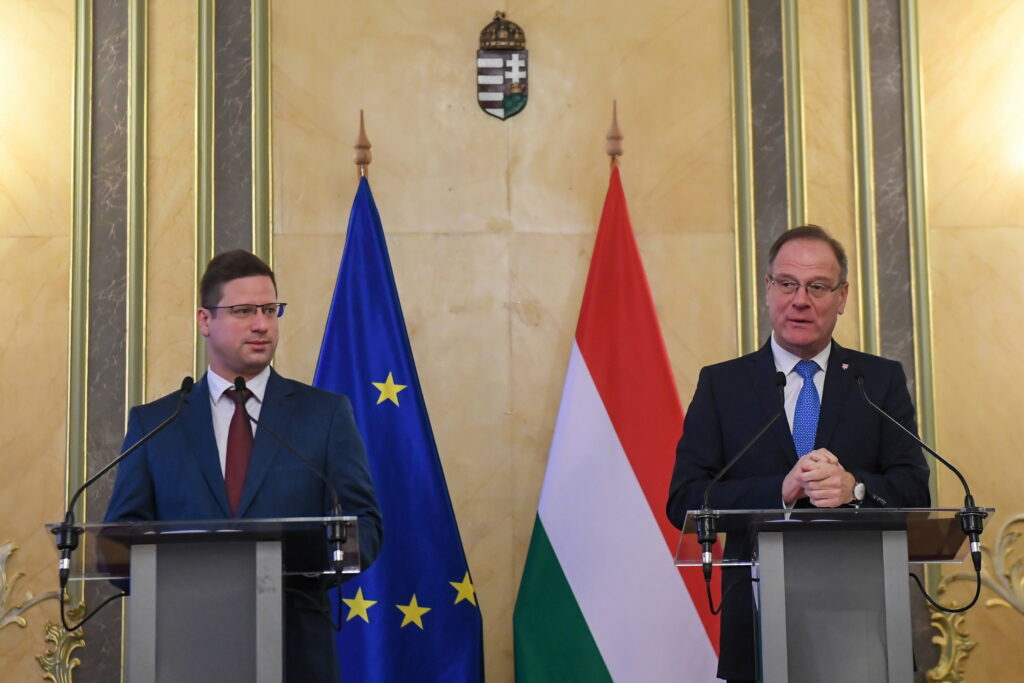The https://english.atlatszo.hu use cookies to track and profile customers such as action tags and pixel tracking on our website to assist our marketing. On our website we use technical, analytical, marketing and preference cookies. These are necessary for our site to work properly and to give us inforamation about how our site is used. See Cookies Policy
The Prime Minister’s Office intented to select public procurement experts in an unlawful procurement procedure
The Prime Minister’s Office had published a tender call in the OJEU in order to award contracts to public procurement consulting firms. However, the tender, with an estimated value of 470 million HUF, was suddenly withdrawn. Although the reason for the withdrawal was not disclosed, the decision was made after one of the tenderers filed a complaint, stating, that the tender had been launched with restrictive selection criteria. The case is absurd, since the call for tender was aimed at selecting experts, who were supposed to ensure the compliance of the EU funded tenders with the relevant public procurement regulations.
The Prime Minister’s Office wanted to conclude a framework agreement for „public procurement and legal expert consulting services, assisting the operations of the EU fund managing authorities and the Public Procurement Supervisory Department (PO) of the Prime Minister’s Office regarding the use of EU funds”. However, the tender was unsuccessful as the Prime Minister’s Office withdrew it.

The call was separated into five lots, each linked to a different EU funding source. The assignment referred to the assessment of 1155 procedures or contracts, and also 1850 additional expert hours were included in the call. It was made clear, however, that the Prime Minister’s Office is not under any obligation to issue any call-offs. The buyer stated, that it plans to carry out the tasks itself, mainly using its own capacities, the external experts are only needed as a backup.
However, one applicant challenged the selection criteria of the tender, and submitted a so called „preliminary dispute settlement”.
According to the applicant, the Prime Minister’s Office „unlawfully defined the minimum eligibility criteria for all parts of the procurement” (in this case, the references required of tenderers) and „the conditions of the tender call does not ensure that economic operators have equal opportunities to submit technically sound, physically feasible and economically realistic bids.”
The applicant has requested that the Prime Minister’s Office undertake a minimum call-off obligation and adjust the eligibility requirements accordingly, or delete the minimum requirements. The bidder also indicated that the tender contained too many unplanned elements and that the penalty was disproportionately high.
The tenderer also drew attention to two other unlawful elements (see: increase in the number of hours eligible and the restrictive provision on the estimated value of works).
In the latter two cases, the Prime Minister’s Office admitted the infringement, and amended or deleted the provisions in question. However, it rejected all other requests.
After the Prime Minister’s Office (partially) rejected the dispute settlement, the company appealed to the Public Procurement Authority’s arbitration committee, and suddenly – without any justification given – the procurement procedure was cancelled. According to a procurement expert we interviewed, this is a clear admission that the tender did not comply with the law. Which is absurd, since the tender was aimed at selecting experts who were supposed to assess the regularity of the same public procurement rules.
We asked the press department of the Prime Minister’s Office why the public procurement procedure was withdrawn and whether the decision had anything to do with the dispute settlement request.
The Prime Minister’s Office has not replied by the time of publication of our article.
Written and translated by Eszter Katus. More detailed Hungarian version of this story can be found here.
Photo: Gergely Gulyás, Minister of the Prime Minister’s Office (b) and Tibor Navracsics, Minister of Regional Development hold a press conference in Budapest on 13 December 2022. MTI/Tibor Illyés

